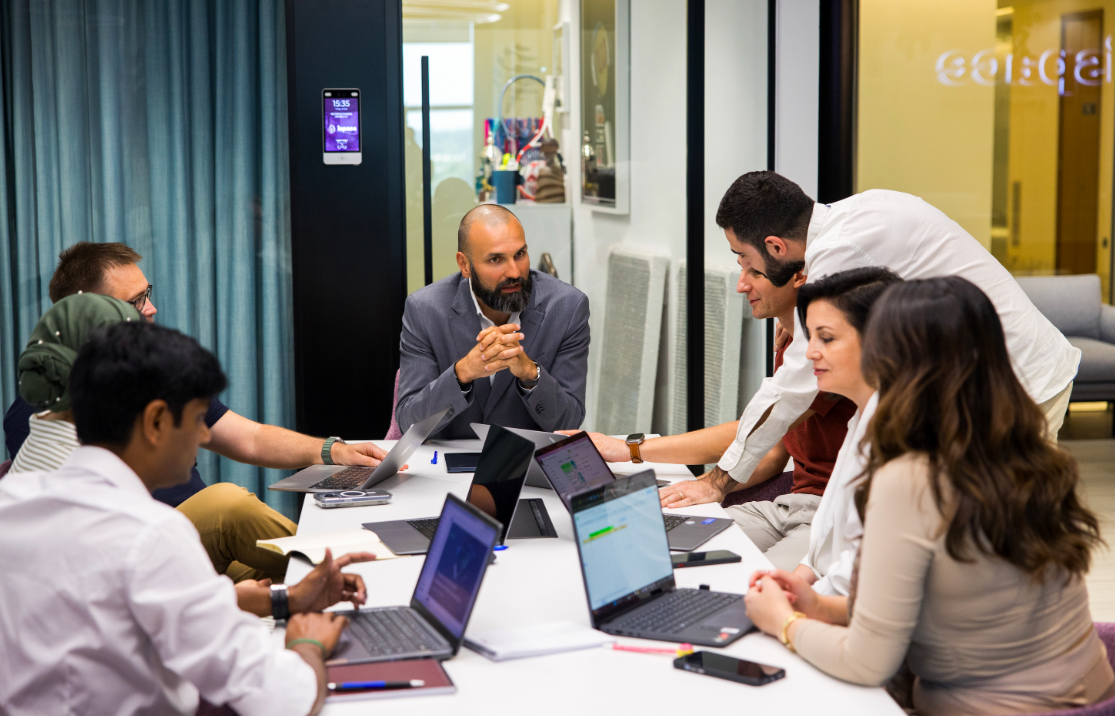CAIRO: Saudi startups continue to demonstrate a pioneering stance by capturing almost half of the region’s total venture funding in the first quarter of the year, underscoring the Kingdom’s growing influence in the regional startup ecosystem.
In a notable achievement, Saudi ventures secured $224 million out of the $429 million raised across the Middle East and North Africa, showcasing a robust entrepreneurial landscape in the Kingdom, according to Wamda’s monthly report.
The surge in startup activity, particularly in March, saw MENA startups raising $254 million across 54 deals, indicating a significant uptick compared to the previous months and a slight increase from the previous year.
Regional funding saw a 186 percent growth in March compared to February’s $88.7 million, and a 1.17 percent increase compared to the same month last year.
This resurgence in March’s investment activity, particularly during LEAP24 held in Riyadh, has placed Saudi startups at the forefront, with significant contributions – such as Salla’s substantial pre-initial public offering round of $130 million.
While the UAE and Egypt trailed with $39 million and $7 million respectively, the majority of the quarter’s funding was directed towards software as a service providers, followed by fintech and e-commerce sectors.
Despite a predominance of seed rounds and series A funding, there was a noticeable absence of larger ticket sizes and later-stage investments compared to the previous year.
Investment trends also highlighted a preference for the business-to-business model over business-to-consumer, with male-led startups dominating the funding landscape, the report stated.
B2C models garnered $48 million, 19 percent of March’s total funding, while B2B saw $188 million, 74 percent of the total amount.
However, female-led startups and teams with mixed-gender founders also made their mark, albeit to a lesser extent.
The month was also rich in mergers and acquisitions, including significant deals like MBC Group’s investment in Anghami and Classera’s acquisition of Expert Solutions.
Additionally, substantial investment funds were announced at LEAP24, further energizing the startup environment and promising more growth and innovation in the region’s entrepreneurial sector.
Out of the funds announced at LEAP, Investcorp is spearheading the initiative with a $500 million fund dedicated to supporting growth-stage ventures in Saudi Arabia, bolstered by a $35 million investment from Saudi Venture Capital.
Concurrently, Oasis Capital also announced the introduction of a $100 million fund focusing on early-stage international ventures.
In the gaming sector, the Saudi Esports Federation, in collaboration with the Social Development Bank and the National Technology Development Program, announced plans to unveil two funds under its Gaming and Esports Sector Financing Program.
Furthermore, Saudi venture capital firms Merak Capital and Impact46 announced $80 million and $40 million funds, respectively.
Plug and Play Tech Center is also entering the scene with a pioneering $50 million fund aimed at nurturing software and tech ventures in Saudi Arabia and the MENA region.
Meanwhile, Takamol Ventures announced a $53 million venture capital fund at LEAP, targeting early-stage tech companies to fuel innovation.
UAE’s fintech Fortis secures $20m in a series A round

Supplied.
UAE’s fintech Fortis announced the successful closure of its series A funding round, securing $20 million led by Opportunity Venture.
This investment signifies a major step forward for Fortis as it seeks to redefine the retail tech and fintech environment in the MENA region.
With a decade of experience under its belt, Fortis is on a mission to enable entrepreneurs to efficiently manage their business operations, both offline and online.
“We are thrilled to have secured this significant investment, which will enable us to accelerate our growth and deliver even greater value to businesses in the MENA region,” Alberto Caruso, Fortis CEO and founder, said.
“We are committed to leveraging this funding to develop progressive solutions and provide unparalleled support to our clients as they navigate the rapidly evolving retail and fintech landscape,” he added.
Their services, which include streamlined order management, personalized loyalty programs, and comprehensive business operation tools, are now set to expand in the UAE.
Fortis is committed to aiding local businesses in enhancing revenue by facilitating better connections between merchants and customers.
“We are excited to lead Fortis’ series A funding round and support their expansion into the MENA region,” said Philip Ma, managing partner at Opportunity Venture.
“Fortis’ innovative approach to fintech and retail tech solutions aligns with our investment thesis, and we believe they are well positioned to drive significant value creation in these sectors,” Ma added.
The newly acquired funds are earmarked for several strategic initiatives aimed at bolstering Fortis’ market position and service offerings.
Key focus areas include the enhancement of customer-centric services, with plans to improve integration with external platforms while also refining Fortis’s own offerings with an emphasis on user experience and interface design.
Furthermore, Fortis intends to establish strategic partnerships with key financial and business service providers, integrating its cutting-edge solutions with those of banks, payment systems, and B2B services.
The development of omnichannel capabilities is also a priority, ensuring that users have a consistent and engaging experience across all platforms and touchpoints.
In addition to service development, a significant portion of the investment will be channeled into brand-building efforts to boost Fortis’s visibility and credibility in the fintech and retail tech sectors.
The expansion drive includes broadening Fortis’s footprint across the MENA region and augmenting its team with new talent to support its growth and innovation objectives.
Bahrain’s Daleel secures investment from Hambro Perks
Bahrain-based Daleel has successfully raised an undisclosed investment from Hambro Perks Spring Studios.
Established in 2022 by founders Dania Alshowaikh, PK Shrivastava, and Ridaa Shah, Daleel offers a platform that simplifies the process for consumers to discover and compare various financial products while providing banks and financial institutions with valuable insights to improve customer acquisition.
The strategic investment is set to fuel Daleel’s expansion efforts, particularly focusing on extending its services to Saudi Arabia and the UAE.





















